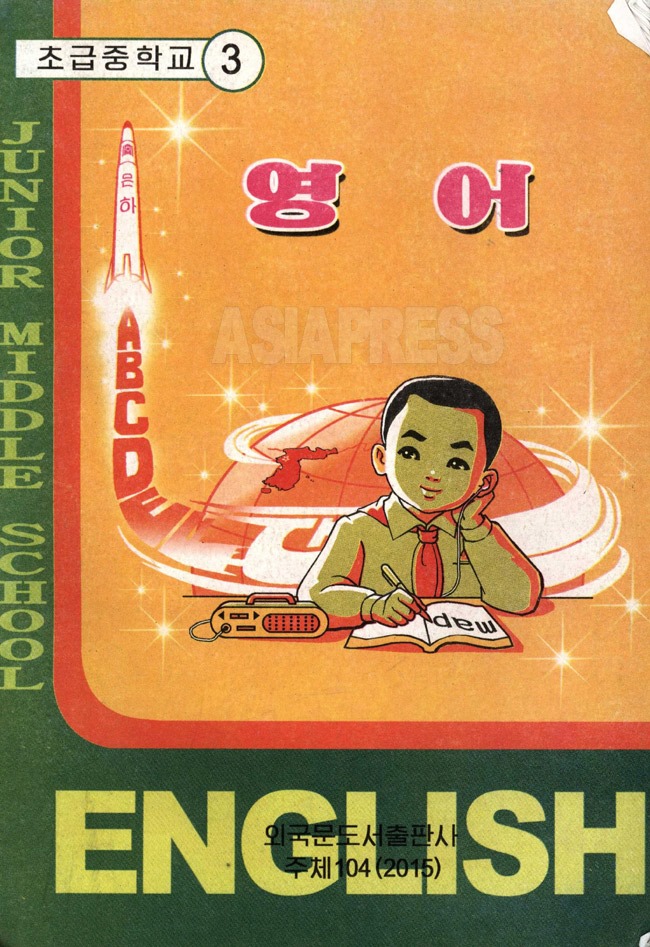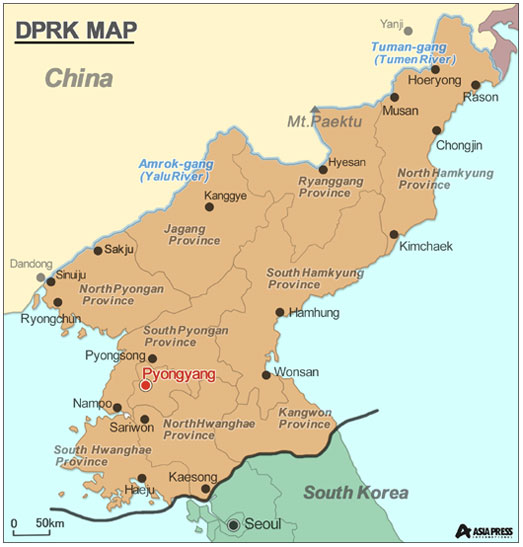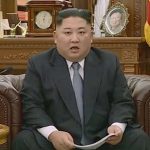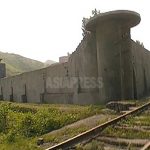
Recently, publications not sanctioned by the government have grown in popularity in North Korea. How can such publications be popular in a country like North Korea, where unofficial printed materials are severely restricted? This article explores the background and reasons for the popularity of illegal printed materials, which are spreading largely through the country’s “private education market.” (KANG Ji-won / JEON sung-jun)
◆ Illegally printed textbooks are increasingly being sold to students and private tutors
In late August, a reporting partner in Hyesan, Yanggang Province, told ASIAPRESS that materials not published by the government are being distributed inside North Korea. Most of the publications are study materials, which students use to prepare for university exams. He also said that people with the authority or ability to print documents are selling the printed materials for money.
“People who graduated from Kim Il Sung University or those with excellent education credentials have been creating study materials on the sly and printing them out to sell to specific students. Students are lining up to get the study materials, particularly the children of officials.”
Of course, these kinds of things happened in the past as well. However, these recent developments are important because despite the harsh crackdowns on unsanctioned printing, unofficial published works are being sold in the markets for economic profit or to fulfill the North Korean people’s universal desire to enter good universities.
North Korean authorities place strict controls on the use of printers and copiers. Enterprises, organizations and schools must get multiple levels of permission to print even a small amount of documents. Many copiers are under lock and key. The private possession of small printers is not acceptable. If someone is found to have operated an illegal printer, they could face political repercussions.
Successive North Korean governments have thoroughly prohibited their people from creating devices that they are unable to control. Of course, these prohibitions have been aimed at preventing the free distribution of information. Then, how have the textbooks ASIAPRESS learned about through its reporting partner been printed? Someone at an enterprise or other organization was probably bribed to print the materials in secret, or someone might have used a small printer they are secretly keeping in their possession.
◆ Business people can earn 100 times the monthly salary of a school teacher
The reporting partner told ASIAPRESS that people generally create their own study materials for academic subjects critical to passing the university exams, including English, foreign languages, mathematics, physics, and chemistry; or they pay someone in Pyongyang for study materials created outside of North Korea, which they reorganize and then sell to students.
“Usually, foreign language study materials of about 20-30 pages go for 35,000 won, and they can be sold 1-2 times a month. They can’t be sold to just anyone; the materials are bought up by those who very serious about studying something.”
*1,000 North Korean won is equal to around 160 South Korean won.
If someone sells textbooks to 25 people twice a month, they would earn around 1,750,000 North Korean won (around 280,000 South Korean won). This would be equal to 343 kilograms of white rice at black market prices (1 kilogram of white rice in November goes for 5,100 North Korean won), which would be 100 times more than the average salary middle school teachers have received over the past several years.
◆ How did this all come to be?
The reporting partner said that students and the parents of students are lining up in droves to buy these study materials. A market has been created for the materials due to high demand and the factors motivating suppliers to produce products for sale. The study materials do not contain anti-state content, so the risk to suppliers and purchasers is relatively low.
Moreover, the people charged with cracking down on such unofficial published materials are the same people who want to buy them. This contradiction shows that crackdowns will fail to have any real effect.
“There’s a lot of wealthy people in one district of the city, and a graduate of Kim Il Sung University is selling study materials to 16 people in the area. Most of the buyers are children of officials or donju, so they’re not afraid of getting caught and nobody sees any problem with what they’re doing.”
The reporting partner said that there is no point in the government cracking down on such a popular business, and that even if the government orders a stronger crackdown on illegally published study materials, the children of party, government and law enforcement and judicial officials will continue to be able to receive well-known study materials from tutors on a regular basis.
◆ What is the significance of the sale of illegal published works in N. Korea?
Given these circumstances, what impact is this business of selling illegally published materials having on North Korean society? While it is too soon to make any firm conclusions, it is safe to say that there is the possibility that the marketization of study materials will give people the broad idea that selling intellectual property - including printed study materials - is a way to earn money.
This means that the authorities will have a difficult time monopolizing control over the publishing of various materials. The situation is similar to the failure of the authorities to eliminate illegal drugs and illegal foreign currency transactions despite harsh crackdowns.
That being said, what is important is that a network could be created to share information among North Korea’s middle and upper classes. Currently, the system in place appears to be nothing more than a way for business people to earn money from ambitious students who dream of success by attending good schools. However, it is encouraging just to know that such a firm system that allows the circulating of knowledge and information exists in North Korea. This kind of system has the potential to be powerful depending on what kind of information it spreads through society.
※ ASIAPRESS communicates with reporting partners through Chinese cell phones smuggled into North Korea.

- <Inside N. Korea> Land-based trade restarts with China through Hyesan…Chinese trade delegation quarantined… “Lack of interest in trade with N. Korea due to distrust of trade policies”
- <Inside N. Korea> ASIAPRESS confirms that defectors were forcibly repatriated in October…N. K authorities warn would-be defectors that they will be caught by facial recognition systems in China
- <Inside N. Korea> Speaking to a Border Guard (2) Defections and smuggling are no longer possible…government finds ways to put a wedge between locals and soldiers over concerns of corruption (5 recent photos)
- <Inside N. Korea>Speaking to a Border Guard (1) Landmine Burial at the Korea-China Border? “Even soldiers are afraid because they don’t know where they’re buried”
- <Inside N. Korea> A recent report on conditions at farms (1) The harvest is better than last year, but lack of materials remains a serious problem (4 recent photos)



![[Video Report] Kotchebi Girls, Sexually Abused and Exploited](https://www.asiapress.org/rimjin-gang/wp-content/uploads/2016/11/1231-150x150.jpg)





















